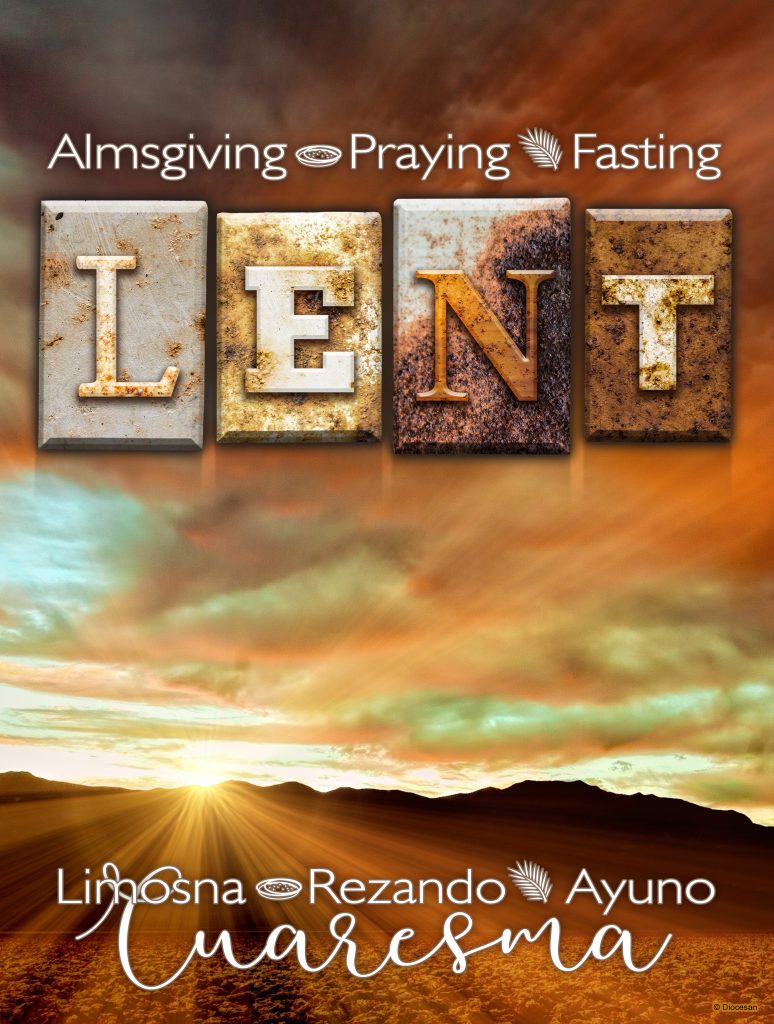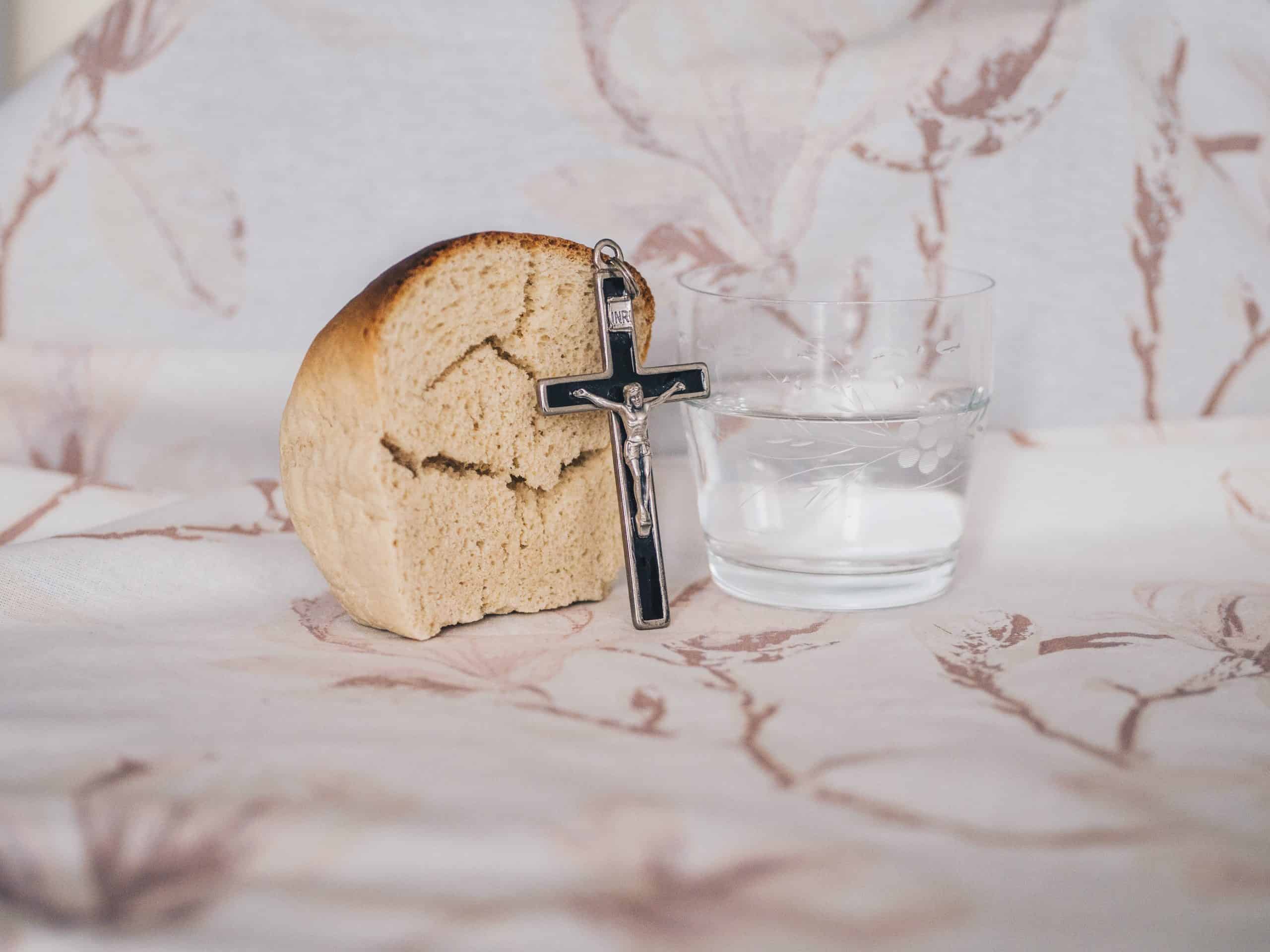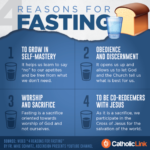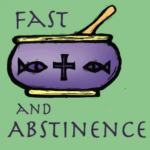Ash Wednesday, February 22, and Good Friday April 7, are days of fast and abstinence. All Fridays during Lent are days of abstinence from meat.
For members of the Latin Catholic Church, fasting is to be observed on Ash Wednesday and Good Friday by all Catholics between the ages of 18 years and 59 years (inclusive). On a fast day, one full meal is allowed. Two small meals, sufficient to maintain strength, may be taken according to one’s needs, but together they should not equal another full meal. Eating between meals is not permitted, but liquids are allowed.
Members of the Eastern Catholic Churches are to observe the particular law of their own sui iuris Church.
If possible, the fast on Good Friday is continued until the Easter Vigil (on Holy Saturday night) as the “paschal fast” to honor the suffering and death of the Lord Jesus and to prepare ourselves to share more fully and to celebrate more readily his Resurrection.
Abstinence from meat is to be observed by all Catholics who are 14 years of age and older. Ash Wednesday, all the Fridays of Lent and Good Friday are days of abstinence.
Note: If a person is unable to observe the above regulations due to ill health or other serious reasons, they are urged to practice other forms of self-denial that are suitable to their condition.
Fasting, almsgiving and prayer are the three traditional disciplines of Lent. The faithful and catechumens should undertake these practices seriously in a spirit of penance and of preparation for baptism or of renewal of baptism at Easter. For more ideas about observing the Lenten season, click below:



